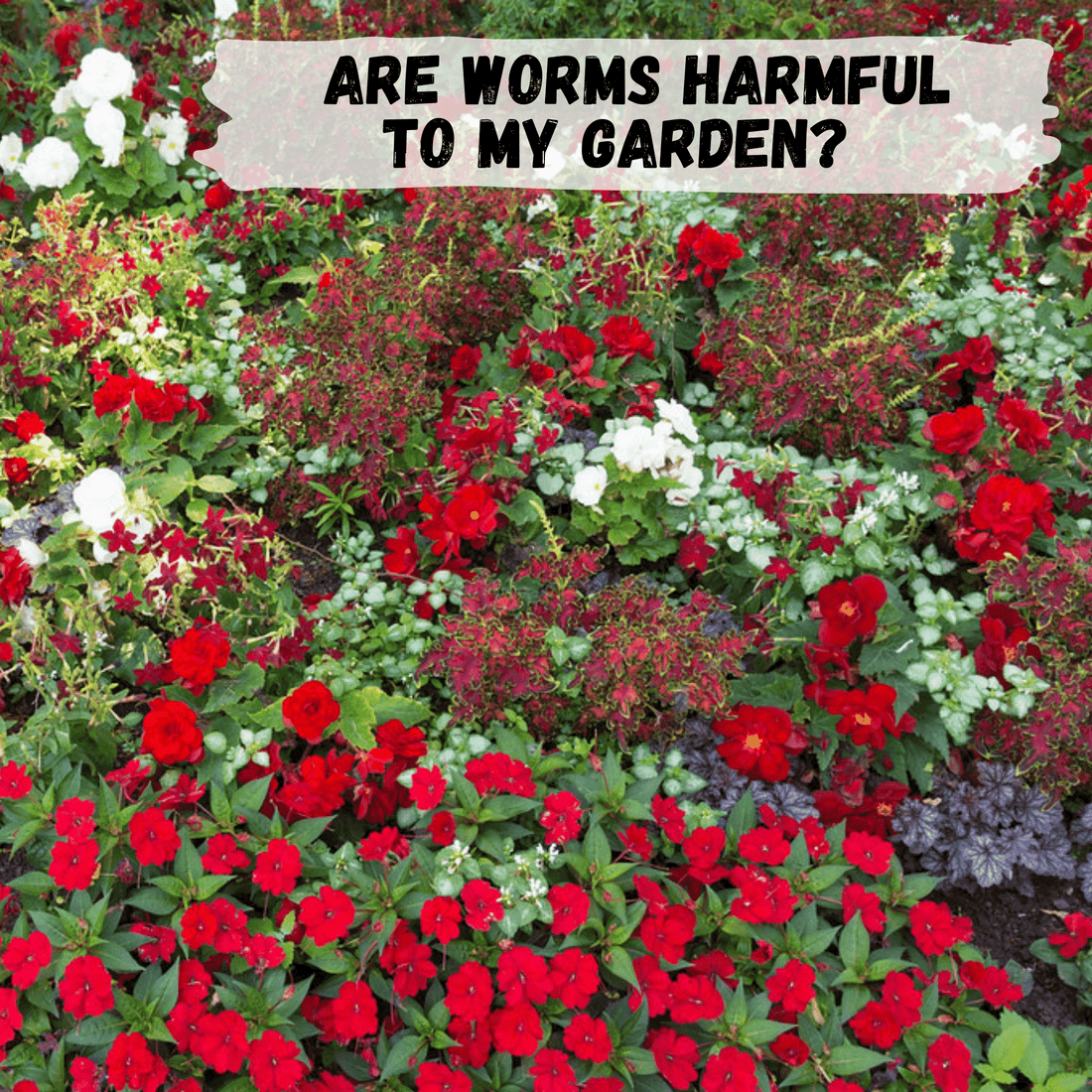By Teresa J. Frith

Thousands of kinds of worms inhabit the Earth, and while many are very good for your garden, there are some that aren’t. Worms are like the intestines of our planet because they burrow all throughout the dirt, eating and processing the soil and leaving behind their worm poop otherwise known as worm castings.
Red Wiggler worms are believed to be able to process half their weight in castings daily, which are a mix of organic material, minerals, as well as other things plants need like nitrogen, calcium, potassium, magnesium, sulfur and iron. These worm castings are therefore are enriching and helpful to the environment, and a welcome additive welcome in a garden.
Worm categories
Most worms can be placed into one of three categories:
- Those that live in bedding or in man-made composting setups like the Worm Bucket Indoor composter kit – These worms, for example red worms, live amongst the leaves and plant debris, and are the ones used for composting to help turn food waste into rich fertilizer. We recommend Red Wigglers for this purpose, but a mix of red wigglers and blues is also common for home vermicomposting systems.
- Those that live in topsoil – These worms, for instance earthworms, live within the top 2 or 3 inches of the soil. They eat soil and organic material and burrow around, aerate the soil and leave their castings behind to enrich the soil.
- Those that live deep underground – These worms, for example nightcrawlers, live between 5 and 6 feet underground, and generate vertical tunnels where they deposit their castings. These are not excellent choices for composting but are beloved by fishermen since they are large and well taken be most types of fish.
The types described above are helpful worms and are good for gardens in most cases. They can help turn barren ground into rich, fertile dirt for growing plants. However, there are other harmful species of worms gardeners should try to avoid.
Bad worms
Nematodes are tiny worms about a millimeter long. Many are parasitic and bad for your garden, though there are a few which actually prey on the bad types. Several other bad species include roundworms, heartworms, tapeworms, and hookworms. These can live in the dirt, and not only do they harm gardens, if their eggs are ingested by humans or other animals, they can cause drastic problems or even death.
A few examples of other bad worms you may see infesting a garden include inchworms and cankerworms, which are actually larvae of moths, as well as cutworms, and wireworms, which are all destructive to both food crops and flowers.

In a few cases, worms like red worms or earthworms could be harmful, even though usually they are welcome in the garden. If they move into an area where the species of plant life requires a layer of leaves and other organic debris for their seeds to germinate and grow, and these worms eat all of it up or chew on their roots, then those plants will die.
If you've been on social media, you've also probably seen the Hammerhead worm. This worm is considered an invasive species and if you find them, you should remove them and destroy them. Cutting them in half is actually not recommended because these worms are believed to be able to regenerate and you might end up with twice the problem! Eliminate them completely if you find them.
One way to protect your garden is to learn how to tell the difference between good and bad worms. For instance, if you can see the segmentation lines on a worm, it is a good species, while if the worm’s body is smooth and lineless, these are the bad worms you don’t want in your garden.
All in all, many kinds of worms are welcome inhabitants of your garden since they aerate the soil, leave their rich castings to be used as fertilizer, and help break up dirt so plant roots have a better chance of growing in a fertile environment. They work like a plow moving the dirt and mixing in the organic material on top into the dirt, thus enriching bad dirt into good dirt for growing plants.
So, the key to having a thriving garden is to learn to identify the worms seen in your garden, then take measures to eradicate the bad ones, and welcome the good ones. If you'd like a controlled environment, you can consider purchasing a worm bin. We recommend actually using a worm composting system like our Worm Bucket so that you can just harvest the nutrient and microbe rich Worm Castings without the risk of your expensive worms escaping from your garden bed as they search and explore. A contained worm system will protect your investment and deliver the microbe and nutrient rich soil amendment called Worm Castings that will make your plants healthy and thrive.

